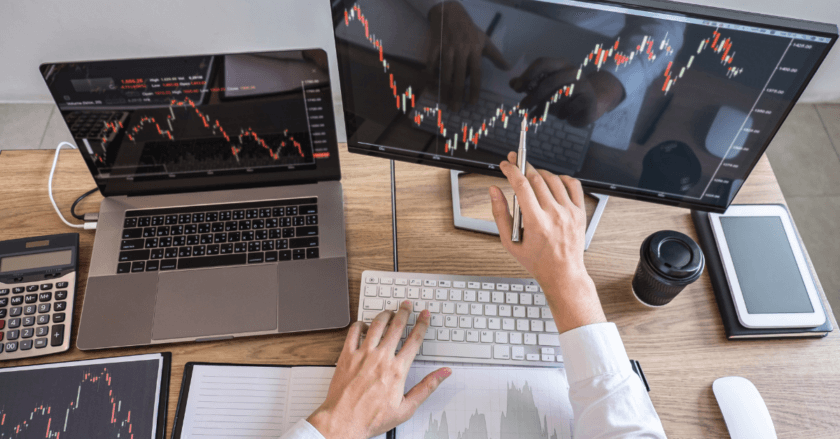Forex trading is an exciting business. There is so much hype surrounding it online, but how exactly can the average person get started with trading forex?
The first thing that you’ll need to do is decide on a broker. This can be accomplished by playing with different forex demo accounts by various brokers. You can find a list of forex brokers here. Once you’ve decided on a broker, the process becomes a standard bureaucratic process that is similar to opening a bank account.
Here are a few things that are typically required:
- Name
- Address
- Phone Number
- Account Currency Type
- A password for your trading account
- Date of Birth
- Country of Citizenship
- Social Security Number or Tax ID
- Employment Status
- Financial Questions:
- Annual Income
- Net Worth
- Trading Experience
- Trading Objectives
You might ask yourself, why do they want to know all of these things? The simple answer is to comply with the law. Forex has been a bit of a wild west industry since it went retail some time ago and because of that regulations have been put in place to “protect” account holders from various types of harm.
It’s unlikely that you will find any broker opening an forex account for you without requiring these questions to be answered. If you do happen to find one that isn’t asking many questions, you should be suspicious. If you are ever not feeling too sure about a particular broker you can look them up through the National Futures Association to find out their status.
During the final steps of opening your account you will see risk disclosures.
Please take these seriously, forex is a difficult business for beginners, it tends to eat them for dinner if they aren’t careful. There are more losers than winners on average. The broker will remind you that forex can be a dangerous business, they are required to do this.
Once you’ve turned in all of your information to be processed, the broker will verify it and typically ask you to send in some verification documents such as a government issued ID, and maybe a utility statement to verify your name and address. This can slow down the process by a day or two, but it’s nothing to worry about.
Once your information is verified, you can fund your account and begin trading. One piece of advice that I like to give to all new traders is not to put any money in their account that they cannot afford to lose. It seems like obvious advice, but some people start off feeling like they know more than they do and they take unnecessary risk. Star t with a fair amount of money and trade small. Nothing in particular can truly prepare you for the emotions that you feel when you money is truly at risk, so go slow in the beginning.
Forex is boring
Forex seems to exciting, but it should be boring and cut and dry. If you feel a bunch of anxiety when making trades, you need to be careful. It’s common to either get too wound up from your winning trades or become a destructive trader from your losing trades. Forex should feel like simple decision making with precautionary steps in case of failure. While that might feel boring to you, you will survive much longer if you approach that market that way.
Keep Your Cool
If you find yourself feeling like you are making common forex mistakes and just generally feeling frustrated, stop trading and review the basics again. Forex trading is one of those industries where occasionally you have to re-evaluate your methods to make sure you are achieving your goals. Try not to get too frustrated and keep your approach scientific.
